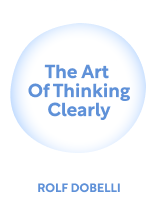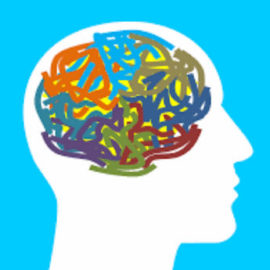

This article is an excerpt from the Shortform book guide to "The Art of Thinking Clearly" by Rolf Dobelli. Shortform has the world's best summaries and analyses of books you should be reading.
Like this article? Sign up for a free trial here .
Is memory a fixed record of the past? Do we always recall memories in their original state?
People believe their memories are untouchable, stored away, and recalled when needed in perfect condition. However, this isn’t the case. Memory errors are proof that memory isn’t a fixed record of past events—your memory of the past is affected by your feelings, opinions, and situation.
Here are some of the most common fallacies and situations in which your memory is unreliable.
Falsification of History
One of the most serious memory errors your brain commits is falsification of history. Your brain is constantly rewriting your memories, Dobelli explains. As your opinions and worldview change over time, your brain alters the details of your memories, making you remember the past in a way that better matches your current opinions and worldview.
(Shortform note: Your brain rewrites memories to be helpful: By updating the information, your memories become more relevant to the current moment and your current decisions. However, rewriting memories also means you become overconfident in your beliefs: When you think you’ve always held the same beliefs, you won’t feel the need to challenge them, and you’ll be skeptical of other people’s ability to change their own beliefs. On the other hand, if you remember how your beliefs have changed over time, you’ll be more open to adjusting them again and more welcoming to others who are challenging their beliefs.)
Even people’s strongest memories, usually made in joyous or traumatic situations, are dramatically altered as time goes by, Dobelli adds. (Shortform note: Many people believe these “flashbulb” moments remain untouched and are represented totally accurately in your memory. However, traumatic memories are often less accurate than other kinds of memories, not more accurate. Sometimes, traumatic memories are almost entirely fabricated because your ability to form memories is hampered in traumatic situations, not increased.)
Cognitive Dissonance
Falsification of history is often triggered by cognitive dissonance, or discomfort when your beliefs or desires conflict with your actions, Dobelli says. To alleviate this discomfort, you deny or rationalize your actions until your memories of the situation change: You deny that you ever acted against your beliefs.
For example, if Ann believes stealing is wrong, but contradicts her beliefs by shoplifting, she’ll experience cognitive dissonance. Her brain will rationalize her actions to minimize the conflict or even change her memories so she forgets she ever shoplifted, depending on how severe the dissonance.
(Shortform note: Cognitive dissonance occurs because people have an innate desire for consistency: You want your decisions to be consistent with your beliefs. This is partly why changing your beliefs and worldview is so difficult, as it triggers cognitive dissonance. However, you can train yourself into new beliefs by consistently behaving in line with those new beliefs: As your new pattern of behavior is reinforced, cognitive dissonance will decrease.)
The Zeigarnik Effect
Another reason why your memory is unreliable is the Zeigarnik effect: Before a task is completed, your brain keeps it at the forefront of your memory. However, once the task is completed, you immediately forget about it.
This makes your brain efficient, Dobelli explains. Your brain holds information as long as necessary, but once that information is deemed unimportant, your brain forgets it to free up mental space for the next, important piece of information. Completed tasks are considered unimportant and thus discarded.
There’s one exception to this rule, Dobelli adds. If you have a number of tasks to complete, making a concrete plan to deal with them can signal your brain to forget the tasks before you finish them. (Shortform note: Making a plan could have the same effect as actually completing the task because of imagination’s effect on the brain. When you imagine something, your brain reacts as if you’re actually experiencing it. So when you imagine completing a task, your brain feels like you really have.)
| How Does the Zeigarnik Effect Work? How does the Zeigarnik effect work, neurologically? Dobelli doesn’t say, but others argue that it comes down to repetition and the different kinds of memory. There are three kinds of memory: sensory, short-term, and long-term. Information is received sensorily, after which it’s either forgotten or moved to short-term memory. Information generally lasts less than a minute in short-term memory, after which it’s either forgotten or moved to long-term memory. You can increase a piece of information’s stay in short-term memory through repetition, and this is how the Zeigarnik effect works. When you leave a task uncompleted, your brain repeats the knowledge for you, subconsciously keeping the information in your short-term memory. The effort that goes into this repetition causes cognitive tension, which results in anxiety and inability to focus. Once the task is completed, your brain stops the repetition and releases the cognitive tension. Depending on how important the information is, it may move to long-term memory or be forgotten entirely. |
Primacy and Recency Effect
The final memory-impacting fallacies we’ll look at are the primacy and recency effects. According to Dobelli, the primacy effect means that the first piece of information you’re introduced to is easier to remember than information introduced later. This is because your brain latches onto that first information and holds it in your short-term memory for longer than usual. This extended stay in short-term memory allows the information to move to long-term memory.
While the primacy effect can extend information’s stay in your short-term memory, it can’t keep it there forever, Dobelli explains. Humans have small short-term memories, so when a new piece of information enters, an older piece of information has to leave. When enough time has passed that the primacy effect stops working and the first piece of information you hear leaves your short-term memory, the recency effect takes over. This means that whatever information you heard most recently is easier to remember. This effect operates entirely in your short-term memory.
(Shortform note: As long as the information is available in your short-term memory, it’s easier to recall. However, because short-term memory generally holds information for less than a minute, the recency effect is only effective for brief periods of time.)
How do you overcome these effects? Dobelli suggests paying close attention to each individual piece of information you learn so that information you gain in the middle of a situation doesn’t get crowded out of your memory by the first or last things you learn.
(Shortform note: While it’s a good idea to lessen the primacy and recency effects, you can also manipulate them to your benefit. When trying to memorize something, focus on the most important information first to trigger the primacy effect and transfer the information to your long-term memory. Second, review the information shortly before you need it to trigger the recency effect.)

———End of Preview———
Like what you just read? Read the rest of the world's best book summary and analysis of Rolf Dobelli's "The Art of Thinking Clearly" at Shortform .
Here's what you'll find in our full The Art of Thinking Clearly summary :
- A detailed look at the most common logical fallacies that inhibit decision-making
- How to recognize and overcome these fallacies to make better decisions
- Why you value things for arbitrary reasons






